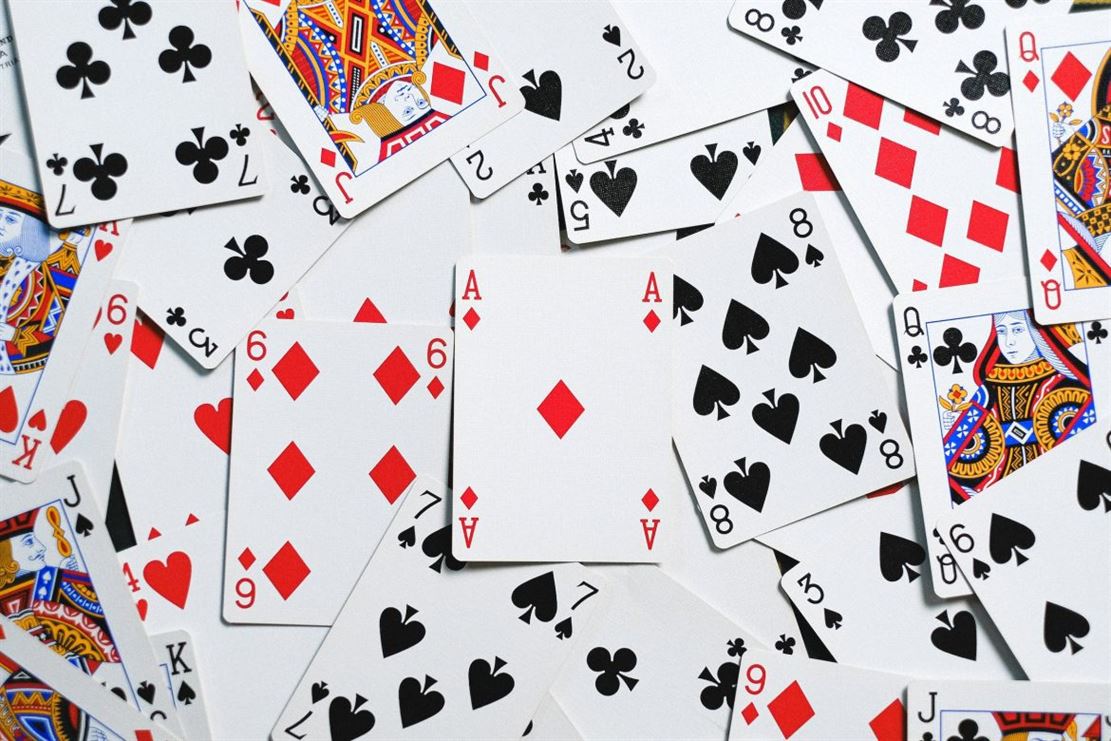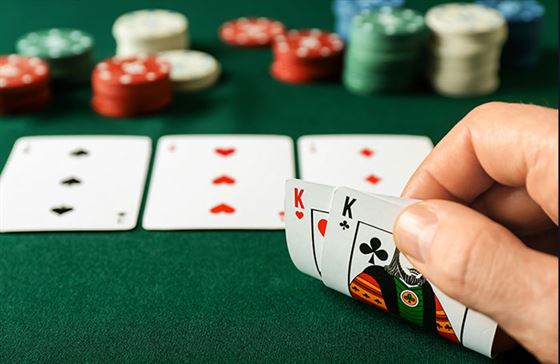In recent years, the world of poker has witnessed a fascinating clash between artificial intelligence (AI) and human players. As technology continues to advance, poker AI has become increasingly sophisticated, challenging the skills and strategies of even the most experienced human professionals. This battle between man and machine raises the question: who will ultimately emerge victorious in the realm of poker?
The Evolution of Poker AI: How Machines Have Become Formidable Opponents
Poker has long been considered a game of skill, strategy, and intuition. It is a battle of wits, where players must carefully analyze their opponents’ moves, bluff, and make calculated decisions. For years, humans have dominated the poker tables, relying on their experience and ability to read their opponents’ body language. However, in recent years, a new challenger has emerged – artificial intelligence (AI).
The evolution of poker AI has been nothing short of remarkable. From its humble beginnings as simple computer programs that could only play basic poker variants, AI has evolved into sophisticated algorithms capable of outsmarting even the most seasoned human players. This transformation has been driven by advancements in machine learning and data analysis, allowing AI to learn from its mistakes and continuously improve its strategies.
One of the key advantages of poker AI is its ability to process vast amounts of data in a fraction of a second. While humans can only rely on their memory and intuition, AI can analyze millions of previous poker hands, identify patterns, and make predictions based on statistical probabilities. This gives AI a significant edge, as it can make more informed decisions and adapt its strategy in real-time.
Another factor that has contributed to the rise of poker AI is its ability to remain emotionless. Unlike humans, who can be influenced by their emotions and make irrational decisions, AI remains cool and calculated at all times. It does not get tired, frustrated, or intimidated by its opponents. This emotional detachment allows AI to make rational decisions based solely on the information it has at hand, giving it a distinct advantage over human players.
Furthermore, poker AI has the ability to exploit human weaknesses. It can identify patterns in a player’s betting behavior, detect bluffs, and exploit any weaknesses in their strategy. This puts human players at a significant disadvantage, as they are more likely to make mistakes and fall into predictable patterns. AI can exploit these weaknesses to its advantage, making it an incredibly formidable opponent.
However, it is important to note that poker AI is not infallible. While it may have the ability to process vast amounts of data and make calculated decisions, it lacks the human element of intuition and creativity. Humans have the ability to think outside the box, come up with innovative strategies, and adapt to changing circumstances. This gives them an edge over AI in certain situations, where unpredictable and unconventional moves can throw off the algorithms.
In conclusion, the evolution of poker AI has transformed the game, making machines formidable opponents for human players. With their ability to process vast amounts of data, remain emotionless, and exploit human weaknesses, AI has become a force to be reckoned with at the poker tables. However, humans still possess the advantage of intuition and creativity, which can give them an edge in certain situations. The battle between poker AI and humans is far from over, and it will be fascinating to see who ultimately emerges victorious.
Analyzing the Strategies of Poker AI: Can Humans Keep Up?
Poker has long been a game of skill and strategy, where players rely on their ability to read opponents, calculate odds, and make calculated decisions. However, in recent years, a new challenger has emerged in the form of artificial intelligence (AI). These advanced computer programs have been designed to analyze vast amounts of data, learn from past experiences, and make decisions based on statistical probabilities. As AI continues to evolve and improve, many are left wondering: can humans keep up with the strategies of poker AI?
One of the key advantages of poker AI is its ability to process and analyze large amounts of data in a short amount of time. While humans are limited by their cognitive abilities, AI can quickly assess the probabilities of different outcomes based on the cards on the table and the actions of other players. This allows AI to make more informed decisions and minimize the element of chance in the game.
Furthermore, poker AI can learn from its mistakes and adapt its strategies accordingly. By analyzing past games and outcomes, AI can identify patterns and trends that humans may overlook. This allows AI to continuously improve its decision-making process and become more difficult to beat over time.
However, it is important to note that poker is not solely a game of statistics and probabilities. Human players possess a unique ability to read and interpret the behavior of their opponents. Through subtle cues such as body language, facial expressions, and betting patterns, humans can gain valuable insights into the intentions and strategies of their adversaries.
This ability to bluff and deceive is a crucial aspect of poker that AI has yet to fully master. While AI can analyze data and make calculated decisions, it lacks the intuition and emotional intelligence that humans possess. Humans can exploit this weakness by intentionally misleading AI through their actions and expressions, making it difficult for AI to accurately assess the true strength of their hand.
Another factor to consider is the element of unpredictability in poker. While AI can analyze probabilities and make optimal decisions based on the information available, humans have the ability to deviate from conventional strategies and introduce an element of surprise. By making unexpected moves or taking calculated risks, humans can throw off the calculations of AI and gain an advantage.
Furthermore, the social aspect of poker cannot be overlooked. The game is often played in a social setting, where players interact with each other and engage in psychological warfare. Humans can use their interpersonal skills to manipulate and influence their opponents, creating a dynamic and unpredictable environment that AI may struggle to navigate.
In conclusion, while poker AI has undoubtedly made significant advancements in recent years, humans still possess certain advantages that make them formidable opponents. The ability to read opponents, bluff, and introduce an element of surprise gives humans an edge that AI has yet to fully replicate. However, as AI continues to evolve and improve, it is clear that the battle between poker AI and humans is far from over. Only time will tell who will ultimately emerge victorious in this high-stakes game of skill and strategy.
The Impact of Poker AI on Professional Players: Are Their Skills Becoming Obsolete?
The world of poker has always been a battleground for human intellect and skill. For decades, professional players have honed their abilities, relying on their instincts, experience, and strategic thinking to outwit their opponents. However, in recent years, a new challenger has emerged – artificial intelligence (AI). With the development of advanced algorithms and machine learning techniques, poker AI has become a force to be reckoned with, raising questions about the future of professional players and the relevance of their skills.
The impact of poker AI on professional players cannot be underestimated. AI systems have been designed to analyze vast amounts of data, learn from past games, and make decisions based on statistical probabilities. This gives them a significant advantage over human players, who rely on their intuition and ability to read their opponents’ behavior. As AI continues to improve, it is becoming increasingly difficult for human players to compete on an equal footing.
One of the main concerns for professional players is that their skills may be becoming obsolete. In the past, poker was seen as a game of psychology, where players had to read their opponents’ facial expressions, body language, and betting patterns to gain an edge. However, AI does not have emotions or physical tells, making it immune to these traditional strategies. Instead, it focuses on analyzing patterns and probabilities, making decisions based on mathematical calculations rather than human intuition.
This shift in the game has led some to question whether professional players will be able to adapt and remain competitive. After all, if AI can consistently make better decisions based on data analysis, what role is left for human players? Some argue that professional players will need to evolve and find new ways to leverage their skills. They may need to become more adept at understanding and utilizing AI themselves, using it as a tool to enhance their decision-making rather than relying solely on their own instincts.
Another concern is that the rise of poker AI may discourage new players from entering the professional circuit. If AI can consistently outperform human players, why would anyone choose to pursue a career in poker? This could have a detrimental effect on the poker industry as a whole, leading to a decline in interest and participation. However, others argue that the challenge posed by AI could actually attract more players, as they seek to test their skills against the best in the world, both human and machine.
Despite these concerns, it is important to remember that poker is not just a game of skill, but also a game of psychology and human interaction. While AI may excel at analyzing data and making optimal decisions, it lacks the ability to adapt to changing circumstances or exploit human weaknesses. Human players, on the other hand, can adapt their strategies, bluff, and manipulate their opponents, using their emotional intelligence to gain an edge.
In conclusion, the impact of poker AI on professional players is undeniable. AI has the potential to outperform human players in terms of data analysis and decision-making. However, this does not mean that professional players will become obsolete. Instead, they will need to adapt and find new ways to leverage their skills in the face of this new challenge. Poker will continue to be a battle between human intellect and artificial intelligence, and only time will tell who will come out on top.
The Psychology of Poker AI: How Machines Exploit Human Weaknesses
The game of poker has long been a battle of wits between humans, but in recent years, a new contender has emerged – artificial intelligence (AI). As technology continues to advance, poker AI has become increasingly sophisticated, challenging the very best human players. But what is it about poker AI that makes it so formidable? The answer lies in the psychology of the game and how machines exploit human weaknesses.
One of the key advantages that poker AI has over humans is its ability to analyze vast amounts of data in a matter of seconds. While humans rely on their intuition and experience to make decisions, AI can process millions of hands and calculate probabilities with unparalleled accuracy. This gives AI a significant edge when it comes to making optimal decisions based on the available information.
Furthermore, poker AI is not subject to the same emotional and psychological factors that often cloud human judgment. Humans are prone to biases, such as the tendency to remember losses more vividly than wins or the fear of taking risks. These biases can lead to poor decision-making and can be exploited by AI. By remaining objective and unemotional, poker AI can exploit these weaknesses and make decisions that humans may find counterintuitive.
Another aspect of the psychology of poker AI is its ability to adapt and learn from its opponents. AI algorithms are designed to analyze patterns and adjust their strategies accordingly. This means that as humans try to exploit the weaknesses of the AI, the AI is simultaneously learning and adapting to counter these strategies. This adaptability makes poker AI a formidable opponent that can quickly adjust its playstyle to exploit any weaknesses in its human opponents.
Moreover, poker AI has the advantage of never getting tired or fatigued. Humans, on the other hand, are prone to mental exhaustion, which can lead to lapses in judgment and costly mistakes. AI can play for hours on end without losing focus, giving it a significant advantage in long, grueling poker sessions. This stamina allows poker AI to maintain a consistent level of play, while humans may experience fluctuations in their performance.
However, it is important to note that humans still possess certain advantages over poker AI. One of these advantages is the ability to bluff and deceive opponents. Bluffing is a fundamental aspect of poker, and while AI can simulate bluffing, it lacks the ability to truly deceive its opponents. Humans can read subtle cues, such as body language and facial expressions, to gain insights into their opponents’ intentions. This human element adds an element of unpredictability to the game that AI struggles to replicate.
In conclusion, the psychology of poker AI reveals how machines exploit human weaknesses to gain an advantage in the game. AI’s ability to analyze vast amounts of data, remain objective, adapt to opponents, and maintain stamina make it a formidable opponent. However, humans still possess certain advantages, such as the ability to bluff and deceive opponents. As technology continues to advance, the battle between poker AI and humans will undoubtedly intensify. Who will ultimately emerge victorious? Only time will tell.
The Future of Poker: Will AI Dominate the Game Completely?
Poker has long been a game of skill, strategy, and intuition. It has captivated players for centuries, with its blend of luck and psychological warfare. But in recent years, a new player has entered the scene – artificial intelligence (AI). With its ability to analyze vast amounts of data and make calculated decisions, AI has quickly become a formidable opponent at the poker table. But will it ever be able to completely dominate the game?
AI has made significant strides in the world of poker. In 2017, an AI program called Libratus defeated four of the world’s best poker players in a 20-day tournament. It was a groundbreaking moment that showcased the potential of AI in the game. Since then, AI has continued to evolve and improve, becoming even more skilled at reading opponents, making complex calculations, and adapting its strategy on the fly.
One of the advantages of AI in poker is its ability to analyze vast amounts of data. While humans are limited by their own experiences and memories, AI can process millions of hands and learn from each one. This gives AI a significant edge when it comes to understanding the game and predicting outcomes. It can quickly identify patterns and trends that humans might miss, allowing it to make more informed decisions.
Another strength of AI is its ability to remain emotionless. Poker is a game of psychology, and emotions can often cloud a player’s judgment. AI, on the other hand, is not susceptible to these emotional biases. It can make rational decisions based solely on the data it has analyzed, without being influenced by fear, greed, or frustration. This gives AI a distinct advantage over human players, who are prone to making mistakes when their emotions get the better of them.
However, despite these advantages, there are still areas where humans have the upper hand. One of the key aspects of poker is bluffing – the art of convincing your opponents that you have a stronger hand than you actually do. Bluffing requires a deep understanding of human psychology and the ability to read subtle cues and body language. While AI has made significant progress in this area, it still struggles to accurately interpret these non-verbal signals. This gives human players an opportunity to outwit and outmaneuver their AI opponents.
Furthermore, poker is not just a game of numbers and calculations; it is also a social activity. The camaraderie and interaction between players are an integral part of the poker experience. AI, by its very nature, lacks the ability to form genuine connections and engage in meaningful social interactions. While it may be able to simulate human-like behavior, it will never be able to replicate the human element that makes poker so captivating.
So, who will ultimately win the battle between poker AI and humans? It is difficult to say for certain. AI has undoubtedly made significant strides in recent years, and its ability to analyze data and make rational decisions gives it a clear advantage. However, there are still aspects of the game that AI struggles to master, such as bluffing and social interaction. Ultimately, the future of poker may lie in a hybrid approach, where humans and AI work together to push the boundaries of the game.
In conclusion, the battle between poker AI and humans is an ongoing one. While AI has made impressive advancements and poses a formidable challenge to human players, there are still areas where humans have the upper hand. The future of poker may see a combination of human intuition and AI’s analytical prowess, creating a new era of the game that pushes the boundaries of what is possible. Only time will tell who will ultimately come out on top in this battle of wits and strategy.
The Ethical Dilemma of Poker AI: Balancing Fairness and Innovation
Poker has long been a game of skill, strategy, and intuition. It is a battle of wits, where players must read their opponents, calculate odds, and make calculated decisions. However, in recent years, a new player has entered the game – artificial intelligence (AI). Poker AI has been making waves in the poker community, challenging human players and raising an ethical dilemma: how do we balance fairness and innovation?
On one hand, poker AI represents a remarkable advancement in technology. It has the potential to revolutionize the game, pushing the boundaries of what is possible. AI algorithms can analyze vast amounts of data, learn from past games, and make decisions based on probabilities and patterns. This level of analysis and calculation is beyond what any human player can achieve. It opens up new possibilities for strategy and gameplay, making the game more exciting and challenging.
However, this innovation comes at a cost. Poker AI has the potential to disrupt the fairness of the game. Human players have always relied on their ability to read their opponents, to detect subtle cues and body language that reveal the strength or weakness of their hand. This psychological aspect of poker is what makes it so captivating and unpredictable. But with AI, all of that is stripped away. AI algorithms do not have emotions, they do not bluff, and they do not give away any tells. They play purely based on mathematical calculations, leaving human players at a disadvantage.
This raises the question of whether it is fair to pit humans against AI in poker games. Is it a level playing field when one player has access to advanced algorithms and data analysis, while the other relies on their intuition and experience? Some argue that it is not fair, that it takes away the essence of the game. They believe that poker should remain a battle of human minds, where players rely on their skills and instincts to outsmart their opponents.
On the other hand, there are those who see the rise of poker AI as an opportunity for growth and improvement. They argue that by playing against AI, human players can learn and adapt. They can study the strategies employed by AI algorithms, understand their decision-making process, and incorporate these insights into their own gameplay. In this view, poker AI becomes a tool for human players to enhance their skills and become better at the game.
But even if we accept the presence of poker AI in the game, there are still ethical concerns that need to be addressed. For example, should AI be allowed to compete in professional poker tournaments? If so, should there be separate categories for human and AI players? How do we ensure that AI algorithms are not being used to cheat or gain an unfair advantage? These are complex questions that require careful consideration and regulation.
In conclusion, the rise of poker AI presents an ethical dilemma for the poker community. While it offers exciting possibilities for innovation and growth, it also raises concerns about fairness and the essence of the game. Striking a balance between these two is crucial to ensure that poker remains a game of skill and strategy, while also embracing the advancements that AI brings. Ultimately, the battle between poker AI and humans is not just about who will win, but also about how we can preserve the integrity and spirit of the game. In conclusion, the battle between Poker AI and humans is ongoing and the outcome remains uncertain. Both sides possess unique strengths and weaknesses, with AI excelling in mathematical calculations and data analysis, while humans possess intuition and adaptability. While AI has made significant advancements in recent years, humans still have the ability to outsmart and bluff AI opponents. Ultimately, the winner of this battle will depend on the continued development of AI technology and the ability of humans to adapt and improve their strategies.




